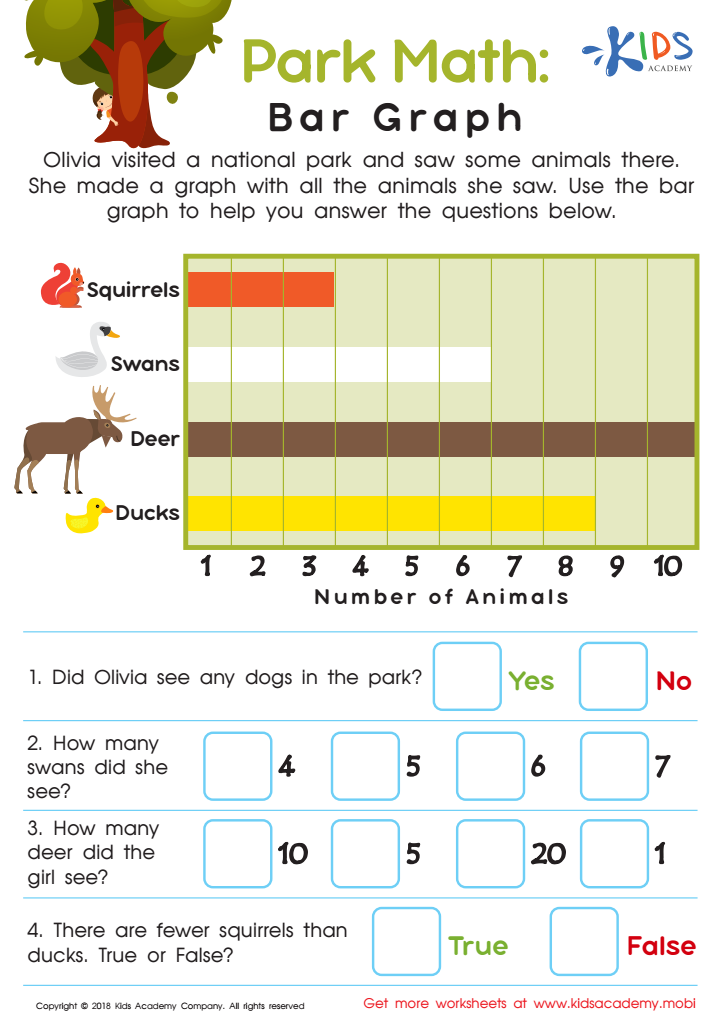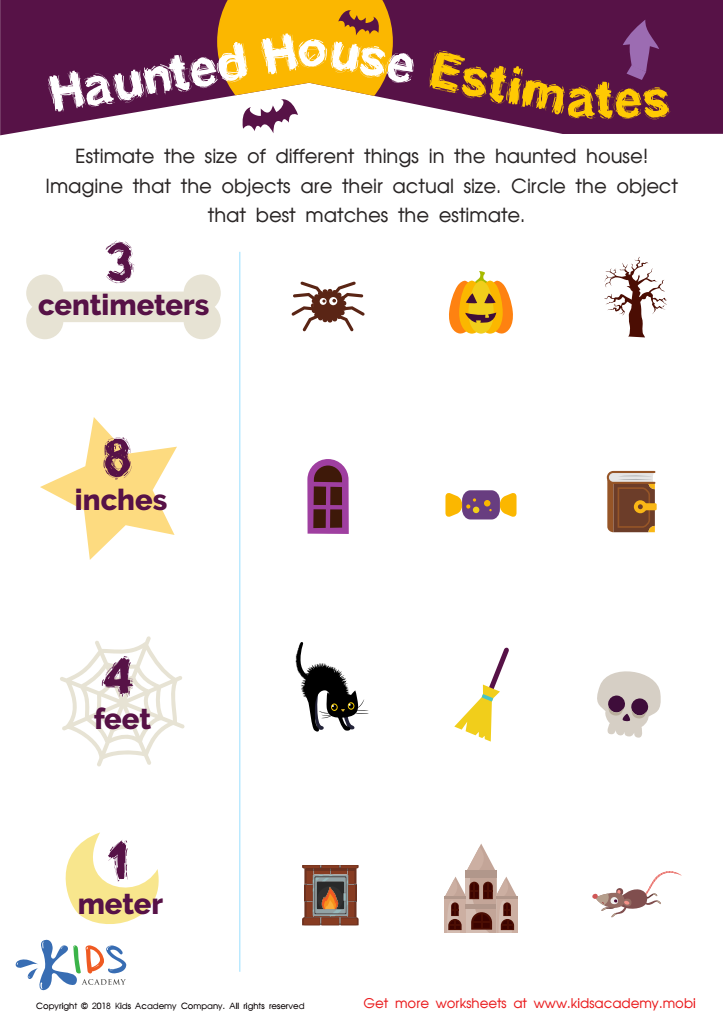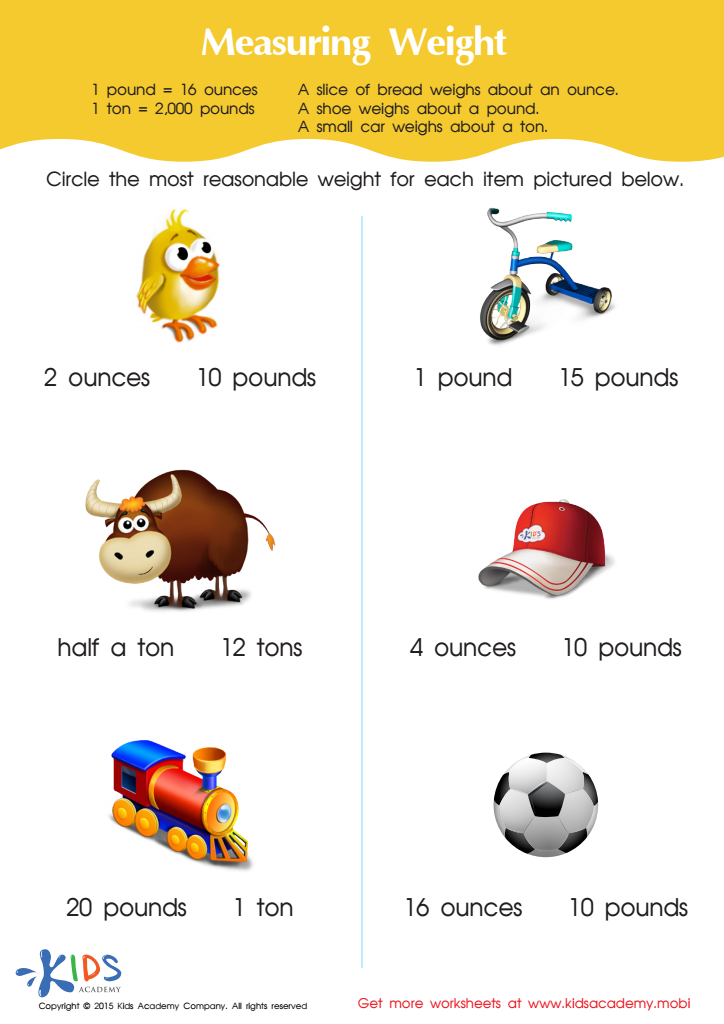Problem-solving abilities Measurement Worksheets for Ages 4-9
3 filtered results
-
From - To
Enhance your child's critical thinking skills with our Problem-solving Abilities Measurement Worksheets for Ages 4-9! Designed to engage young minds, these worksheets provide a fun and interactive approach to mastering essential problem-solving techniques through measurement activities. As children explore various challenges, they will develop their analytical skills, boost confidence, and nurture creativity. Our easy-to-understand layout and age-appropriate content foster independent learning while ensuring a solid foundation in mathematics. Ideal for homeschooling or as supplemental classroom material, these worksheets will make learning enjoyable and effective. Start your child's journey toward becoming a confident problem solver today!


Park Math: Bar Graph Worksheet


Haunted House Estimates Worksheet


Measuring Weight in Ounces, Pounds and Tons (Part 2) Worksheet
Problem-solving abilities are crucial skills that form the foundation of children's cognitive development and are essential for success in school and beyond. For children ages 4-9, honing these skills helps them understand and navigate their environment, develop critical thinking, and foster creativity. Measurement of these abilities allows parents and teachers to assess where a child stands in their problem-solving journey, identifying strengths and areas that may need support.
By measuring problem-solving skills, parents and teachers can tailor learning experiences to meet individual needs, ensuring children are challenged appropriately. These abilities are linked to academic achievements in subjects like math and science, emphasizing their importance across the curriculum. Moreover, strong problem-solvers are better equipped to handle social challenges, negotiate problems with peers, and build resilience—qualities that contribute to lifelong learning.
Furthermore, tracking progress in problem-solving can enhance motivation and self-esteem in children, as they see their growth and improvement over time. Thus, understanding and nurturing these critical skills not only benefits the child's immediate educational journey but also prepares them to tackle future life challenges, making it imperative for caregivers to engage with and prioritize this developmental aspect.
 Assign to My Students
Assign to My Students





















